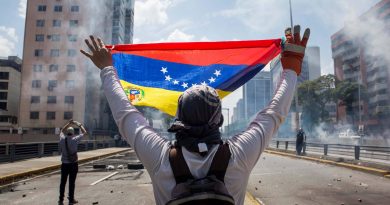World Economic Forum Opens Possibilities for Growth in Association of South East Asia Nations.
By Tien Phan
Staff Writer
On September 11, 2018, the World Economic Forum kicked off in Hanoi, Vietnam with the theme “ASEAN 4.0: Entrepreneurship and the Fourth Industrial Revolution,” reported the Nhan Dan. With as much as sixty discussions being carried out by multiple involved parties, the Association of South East Asia Nations (ASEAN) is “in a good position” to take advantage of this rapid change in how global economy functions, according to Singapore’s Prime Minister Lee Hsien Long.
Mr. Lee believes that ASEAN’s productivity rate will only increase because businesses are adapting to modern changes with a young work force that is able to manage this transformation comfortably. Moreover, Channels News Asia reports that with this growth rate and solid fundamentals, becoming the fourth largest economy in the world alongside the U.S., China, and the European Union is a realistic goal for the ASEAN by 2030.
Acknowledging these uncovered potentials of ASEAN is essential, but that is not the only topic being discussed throughout the three-day forum. World Economic Forum reports that leaders of the alliance cannot ignore what is happening with the U.S.-China trade wars. Though not actively involved in the high-tension battle between the two superpowers, South East Asian nations’ markets are caught in a crossfire because these nations and must choose a side for their trade partnerships.
Indonesian President, Joko Widodo, emphasized the importance of unified prosperity; having a winner or a loser is not an option in economic terms. As such, ASEAN members are not alone; their counterparts from China, Japan, and South Korea also recognize the trade war could lead to nowhere, and pledge to uphold openness and mutual interests, according to the World Economic Forum.
Devex reports that in order to improve ASEAN itself, members’ flaws must be noted so that the group as a whole can improve an increasingly interdependent international community. The host nation, Vietnam, still has stigmas with human rights activists as many individuals were blocked from entering the country despite receiving invitations to join the forum.
Notably, Amnesty International Senior Director of Global Operations, Minar Pimple, and Secretary General of the International Federation of Human Rights, Debbie Stothard, were both denied entry into Noi Bai airport. Mr. Pimple failed to even acquire a Vietnamese visa for his attendance. This has raised some questions regarding fundamental courtesy and Vietnam’s legitimacy on a global scale.
Furthermore, Ms. Aung San Suu Kyi took all of the responsibilities for targeting the Rohingya Muslim community, whose almost 700,000 individuals have been forced to flee for their lives. Despite her acknowledgement that the situation could have been handled with better measures, Ms. Suu Kyi states that other minorities are disappearing as well.
Realizing their potential in coming years and also acquiescing their flaws, ASEAN members are keen to matriculate and attain more knowledge on how to live up to global expectations. Business Times reports that with differences in economic structures, there are two main traits that all members are sharing in their goal to development: pro-growth public policy and a competitive domestic economy.
To be specific, there would be no growth if there is no productivity among the workforce. Fortunately, ASEAN members’ workforce is known to be beneficial in both productivity and labor cost. Adding one of the world’s strongest technology and domestic savings to the equation, these numbers will no doubt increase along with per capita GDP. Moreover, competitive dynamics in an outperforming economic model is an impactful factor as well. ASEAN markets have many medium and small firms who supply for larger businesses, reports Business Times.
Nhan Dan stated that reaching this potential is possible, however, ASEAN members need to maintain realistic governmental activities and improve infrastructure as well as skilled-intensive labor. In the words of Mr. Nguyen Manh Hung, Vietnamese Acting Minister of Information and Communication, “We have to train people so they are adept to change, not only technological training, but soft skills too. I think the Fourth Industrial Revolution is more about a mindset revolution.”

